Depression during menstrual cycle
Why it happens, and what to do
Feeling depressed before and during a menstrual period is common. Experts believe that these emotional changes occur as a result of fluctuating hormone levels.
Most people who menstruate will experience some symptoms of premenstrual syndrome (PMS), including moodiness and headaches.
However, some individuals can develop more severe symptoms, such as depression and anger. Hormones can also cause people to feel nauseated during their period.
Severe PMS symptoms may indicate another condition, which is called premenstrual dysphoric disorder (PMDD). Additionally, existing mental health conditions may temporarily worsen during a menstrual period.
In this article, we explore why some people feel depressed during a period. We also list home remedies and treatment options.
Share on PinterestLow levels of serotonin and dopamine can cause sadness and anxiety.Hormonal changes during the second half of the menstrual cycle, called the luteal phase, may cause a low mood and irritability in some people.
After ovulation, which occurs midcycle, the levels of the female sex hormones estrogen and progesterone begin to fall.
Rising and falling levels of these hormones can affect brain chemicals called neurotransmitters.
Examples of these neurotransmitters are serotonin and dopamine, which are both chemicals that influence mood, sleep, and motivation.
Low levels of serotonin and dopamine can cause:
- sadness
- anxiety
- irritability
- sleep problems
- food cravings
All of these are common symptoms of PMS and PMDD.
When the levels of estrogen and progesterone begin to rise again a few days after the onset of a period, these symptoms often go away.
Despite the connection between neurotransmitters and sex hormones, it is still unclear why some people develop PMS or PMDD when others do not.
Research indicates that the levels of progesterone and estrogen are similar between people who develop a premenstrual disorder and those who do not.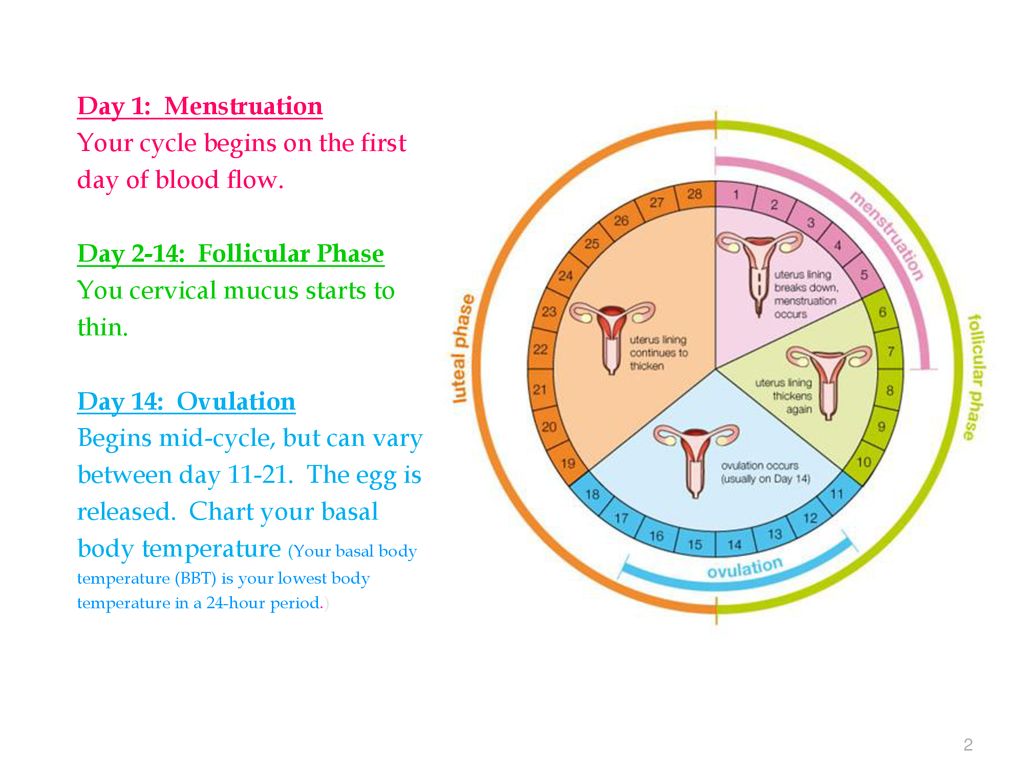
Therefore, experts speculate that genetic differences may make some people more sensitive than others to changing hormone levels and the influence of these hormones on the brain.
PMS and PMDD are types of menstrual-related mood disorders. A period can also cause an existing mental health condition to worsen temporarily.
PMS
PMS causes both physical and emotional symptoms. These symptoms can begin at any stage between the end of ovulation and the beginning of the menstrual period.
Experts estimate that up to 75% of menstruating women experience some form of PMS.
The symptoms of PMS can vary greatly. Some people may have very mild symptoms, while those that others experience are debilitating.
PMS can cause:
- aches and pains
- acne
- anxiety
- bloating
- bouts of crying
- breast tenderness
- changes in appetite
- constipation or diarrhea
- depressed mood
- fatigue
- headaches
- irritability and anger
- lack of concentration
- sleep difficulties
PMDD
PMDD is a more severe form of PMS. PMDD may affect 3–8% of people with menstrual cycles.
PMDD may affect 3–8% of people with menstrual cycles.
The symptoms are so severe that they affect the person’s daily activities and, sometimes, their relationships with others.
Symptoms of PMDD include:
- severe depression, anxiety, and irritability
- panic attacks
- severe mood swings
- frequent episodes of crying
- loss of interest in activities and other people
Suicidal ideation or attempts are a possible symptom of PMDD. According to the International Association for Premenstrual Disorders (IAPMD), an estimated 15% of women with PMDD will attempt suicide in their lifetime. Transgender people have an even higher risk.
Suicide prevention
If you know someone at immediate risk of self-harm, suicide, or hurting another person:
- Ask the tough question: “Are you considering suicide?”
- Listen to the person without judgment.
- Call 911 or the local emergency number, or text TALK to 741741 to communicate with a trained crisis counselor.
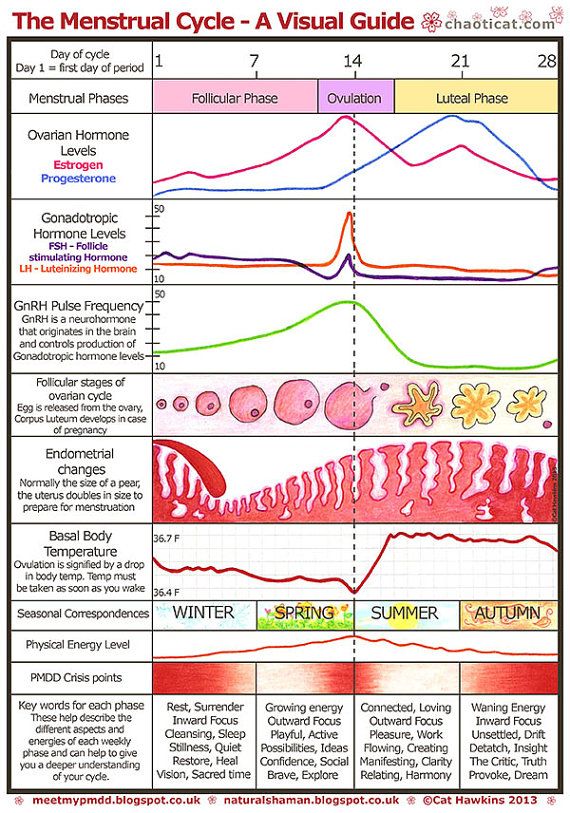
- Stay with the person until professional help arrives.
- Try to remove any weapons, medications, or other potentially harmful objects.
If you or someone you know is having thoughts of suicide, a prevention hotline can help. The 988 Suicide and Crisis Lifeline is available 24 hours a day at 988. During a crisis, people who are hard of hearing can use their preferred relay service or dial 711 then 988.
Click here for more links and local resources.
PMDD also shares many symptoms with PMS, including:
- aches and pains
- acne
- bloating
- breast tenderness
- constipation or diarrhea
- fatigue
- food cravings
- headaches
- lack of concentration
- sleep difficulties
Premenstrual exacerbation
Hormonal changes before a period can make the symptoms of an existing mental health condition worse. This effect is known as premenstrual exacerbation.
Common disorders that may co-occur with PMS include:
- bipolar disorder
- depression
- persistent depressive disorder (dysthymic disorder)
- generalized anxiety disorder
- panic disorder
Research suggests that depression tends to be more prevalent among those with PMS than in those without this condition.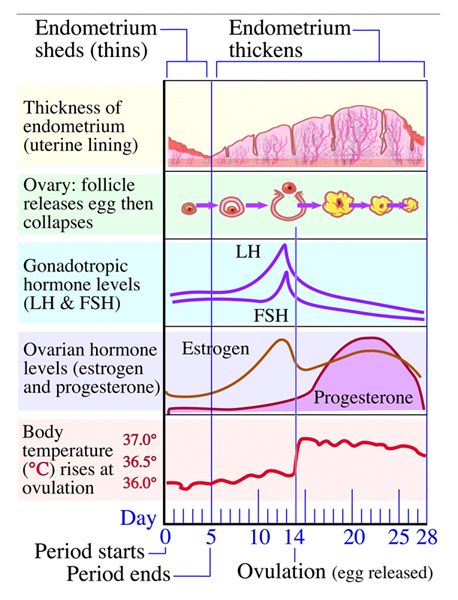
Individuals who experience depression during their period should speak to their doctor.
Various treatments are available for depression, PMS, and PMDD. The options range from home remedies to medication.
It can be useful to track symptoms before and during a menstrual period to help a doctor confirm a diagnosis and create a treatment plan.
People can keep a journal of their moods and their cycle, or they can use a period tracking app.
Learn about 10 of the best period tracking apps in this article.
Home remedies
Dietary and lifestyle changes may help in cases of mild PMS.
In more severe cases, or for PMDD, home remedies alone are unlikely to make a significant difference. However, they may help when individuals combine them with other treatments.
Potentially remedies include:
- eating a balanced diet and limiting the intake of sugar, fat, salt, refined carbohydrates, and alcohol
- exercising regularly
- getting enough sleep and keeping a regular sleep schedule
- reducing stress by eliminating sources of stress where possible and practicing yoga and mindfulness
Supplements may also help.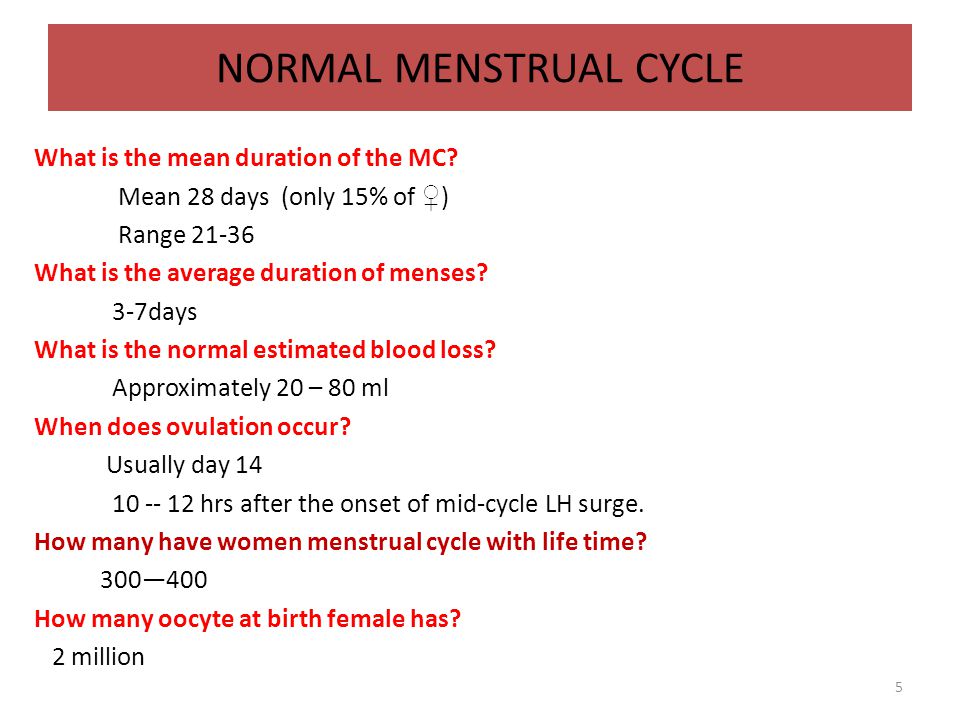 Research suggests that a calcium supplement may reduce PMS-related symptoms, including depression, fatigue, and appetite changes.
Research suggests that a calcium supplement may reduce PMS-related symptoms, including depression, fatigue, and appetite changes.
It is important to speak to a doctor before taking supplements to treat PMS or any other condition.
Medication
A doctor may suggest using hormonal birth control to manage PMS symptoms. Sometimes, they may prescribe an antidepressant. Finding the right treatment can require a trial-and-error approach.
Hormonal birth control options include the pill or the patch. These may alleviate depression and other emotional and physical symptoms. In some cases, however, birth control can make depression worse.
Selective serotonin reuptake inhibitors (SSRIs) are the first-line treatment for PMDD.
People may take SSRIs throughout their menstrual cycle or during the luteal phase only. They may also be helpful for more severe cases of PMS.
Research indicates that 60–70% of women with PMDD respond to SSRIs. This rate of effectiveness is similar to that in those with major depression.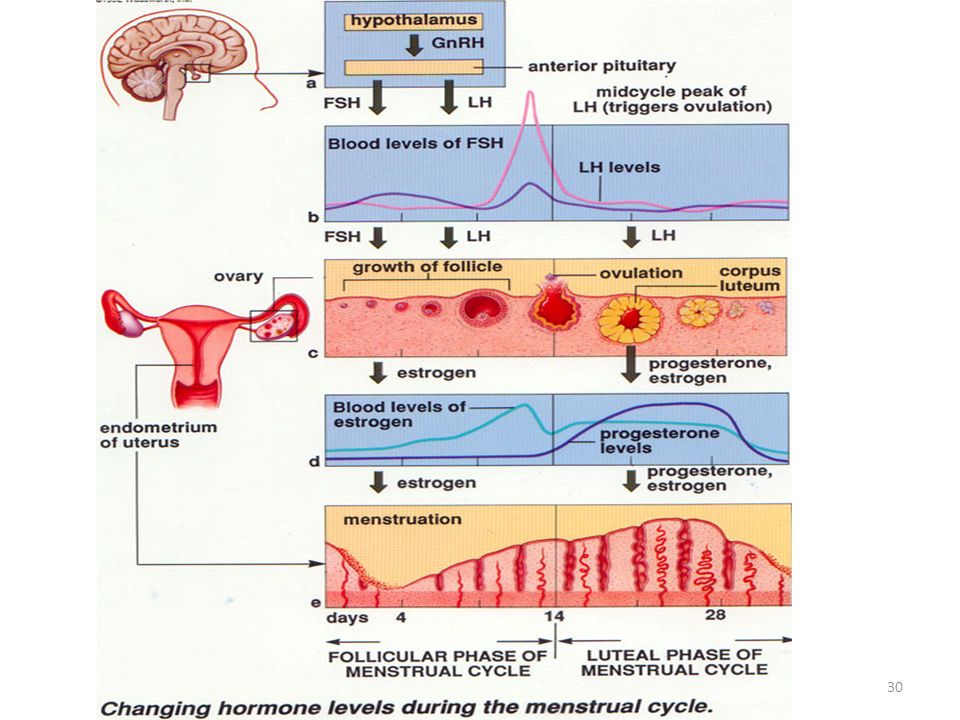
If SSRIs do not work, or if they cause undesirable side effects, a doctor may prescribe another type of antidepressant.
Individuals who experience depression regularly before or during their period may wish to speak to a doctor. Treatment is available for people with PMS, PMDD, or co-occurring mental health conditions.
If someone is at immediate risk of suicide or serious self-harm, seek emergency help by calling 911 or the local emergency number.
Anyone with suicidal thoughts can access help from the National Suicide Prevention Lifeline at 1-800-273-8255.
Experiencing low mood, anxiety, or irritability during a period is common. These symptoms should resolve a few days after the onset of the menstrual period. In mild cases, lifestyle and dietary changes may be beneficial.
If these mood changes occur regularly, persist all month, or have a significant effect on a person’s life or relationships, they may require other treatment.
Many people can get relief from PMS or PMDD with appropriate treatment.
More support and information are available through the IAPMD.
Why it happens, and what to do
Feeling depressed before and during a menstrual period is common. Experts believe that these emotional changes occur as a result of fluctuating hormone levels.
Most people who menstruate will experience some symptoms of premenstrual syndrome (PMS), including moodiness and headaches.
However, some individuals can develop more severe symptoms, such as depression and anger. Hormones can also cause people to feel nauseated during their period.
Severe PMS symptoms may indicate another condition, which is called premenstrual dysphoric disorder (PMDD). Additionally, existing mental health conditions may temporarily worsen during a menstrual period.
In this article, we explore why some people feel depressed during a period. We also list home remedies and treatment options.
Share on PinterestLow levels of serotonin and dopamine can cause sadness and anxiety.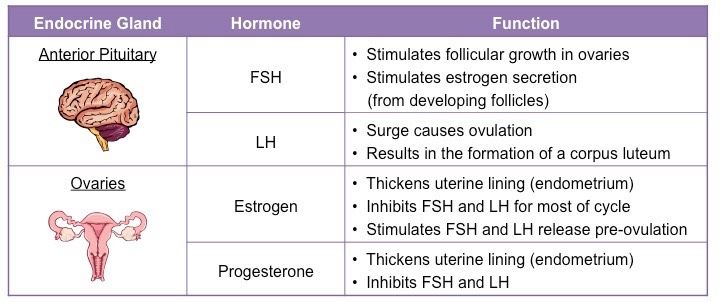
Hormonal changes during the second half of the menstrual cycle, called the luteal phase, may cause a low mood and irritability in some people.
After ovulation, which occurs midcycle, the levels of the female sex hormones estrogen and progesterone begin to fall.
Rising and falling levels of these hormones can affect brain chemicals called neurotransmitters.
Examples of these neurotransmitters are serotonin and dopamine, which are both chemicals that influence mood, sleep, and motivation.
Low levels of serotonin and dopamine can cause:
- sadness
- anxiety
- irritability
- sleep problems
- food cravings
All of these are common symptoms of PMS and PMDD.
When the levels of estrogen and progesterone begin to rise again a few days after the onset of a period, these symptoms often go away.
Despite the connection between neurotransmitters and sex hormones, it is still unclear why some people develop PMS or PMDD when others do not.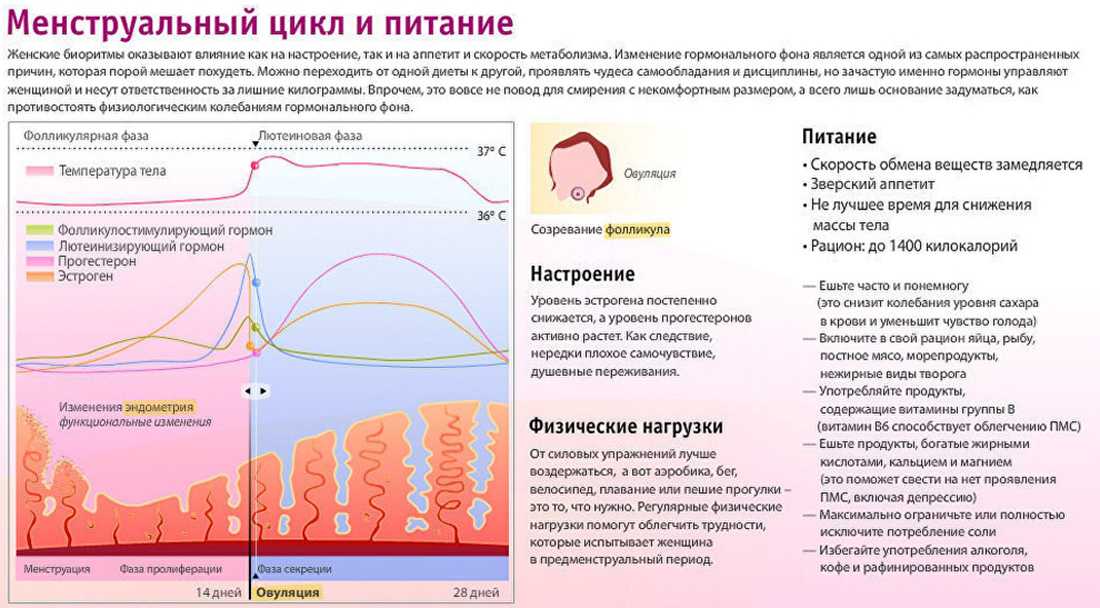
Research indicates that the levels of progesterone and estrogen are similar between people who develop a premenstrual disorder and those who do not.
Therefore, experts speculate that genetic differences may make some people more sensitive than others to changing hormone levels and the influence of these hormones on the brain.
PMS and PMDD are types of menstrual-related mood disorders. A period can also cause an existing mental health condition to worsen temporarily.
PMS
PMS causes both physical and emotional symptoms. These symptoms can begin at any stage between the end of ovulation and the beginning of the menstrual period.
Experts estimate that up to 75% of menstruating women experience some form of PMS.
The symptoms of PMS can vary greatly. Some people may have very mild symptoms, while those that others experience are debilitating.
PMS can cause:
- aches and pains
- acne
- anxiety
- bloating
- bouts of crying
- breast tenderness
- changes in appetite
- constipation or diarrhea
- depressed mood
- fatigue
- headaches
- irritability and anger
- lack of concentration
- sleep difficulties
PMDD
PMDD is a more severe form of PMS.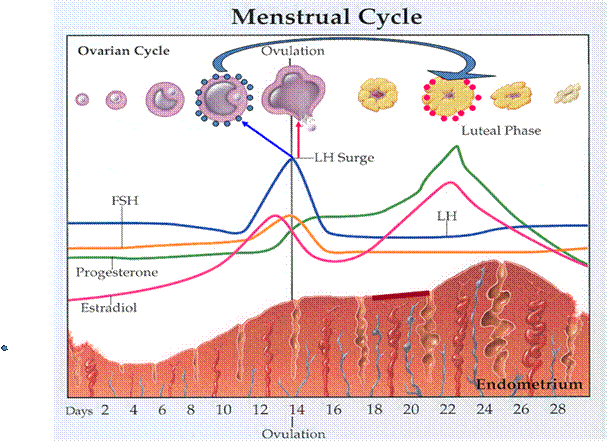 PMDD may affect 3–8% of people with menstrual cycles.
PMDD may affect 3–8% of people with menstrual cycles.
The symptoms are so severe that they affect the person’s daily activities and, sometimes, their relationships with others.
Symptoms of PMDD include:
- severe depression, anxiety, and irritability
- panic attacks
- severe mood swings
- frequent episodes of crying
- loss of interest in activities and other people
Suicidal ideation or attempts are a possible symptom of PMDD. According to the International Association for Premenstrual Disorders (IAPMD), an estimated 15% of women with PMDD will attempt suicide in their lifetime. Transgender people have an even higher risk.
Suicide prevention
If you know someone at immediate risk of self-harm, suicide, or hurting another person:
- Ask the tough question: “Are you considering suicide?”
- Listen to the person without judgment.
- Call 911 or the local emergency number, or text TALK to 741741 to communicate with a trained crisis counselor.
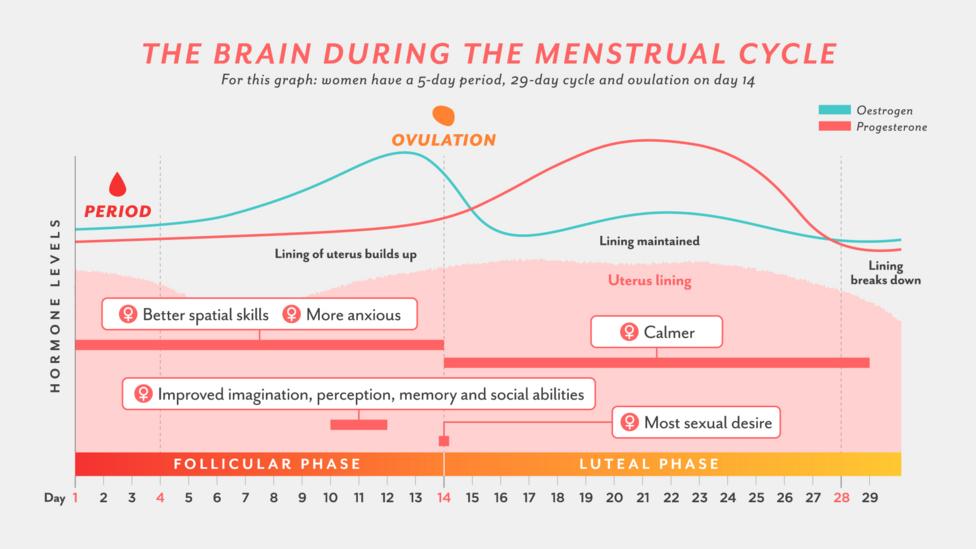
- Stay with the person until professional help arrives.
- Try to remove any weapons, medications, or other potentially harmful objects.
If you or someone you know is having thoughts of suicide, a prevention hotline can help. The 988 Suicide and Crisis Lifeline is available 24 hours a day at 988. During a crisis, people who are hard of hearing can use their preferred relay service or dial 711 then 988.
Click here for more links and local resources.
PMDD also shares many symptoms with PMS, including:
- aches and pains
- acne
- bloating
- breast tenderness
- constipation or diarrhea
- fatigue
- food cravings
- headaches
- lack of concentration
- sleep difficulties
Premenstrual exacerbation
Hormonal changes before a period can make the symptoms of an existing mental health condition worse. This effect is known as premenstrual exacerbation.
Common disorders that may co-occur with PMS include:
- bipolar disorder
- depression
- persistent depressive disorder (dysthymic disorder)
- generalized anxiety disorder
- panic disorder
Research suggests that depression tends to be more prevalent among those with PMS than in those without this condition.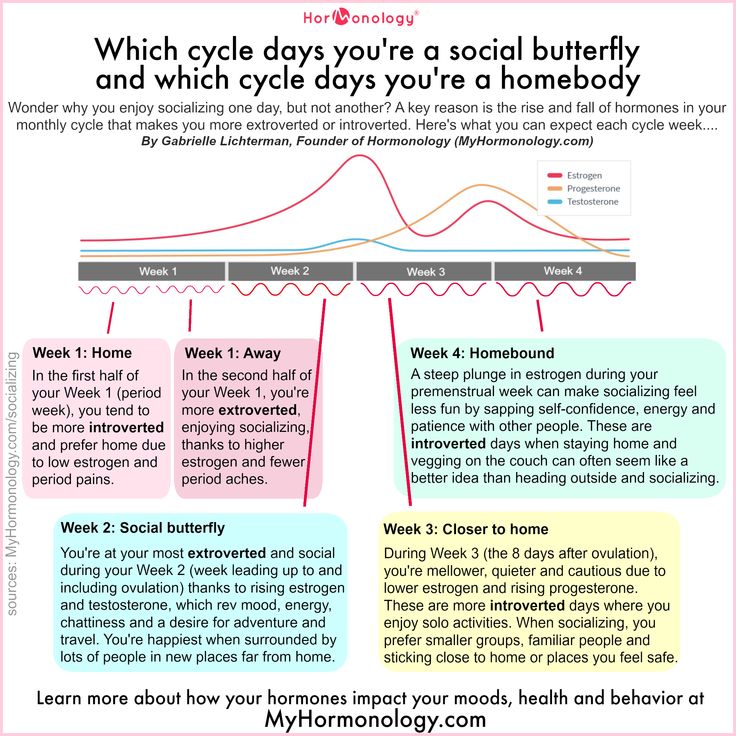
Individuals who experience depression during their period should speak to their doctor.
Various treatments are available for depression, PMS, and PMDD. The options range from home remedies to medication.
It can be useful to track symptoms before and during a menstrual period to help a doctor confirm a diagnosis and create a treatment plan.
People can keep a journal of their moods and their cycle, or they can use a period tracking app.
Learn about 10 of the best period tracking apps in this article.
Home remedies
Dietary and lifestyle changes may help in cases of mild PMS.
In more severe cases, or for PMDD, home remedies alone are unlikely to make a significant difference. However, they may help when individuals combine them with other treatments.
Potentially remedies include:
- eating a balanced diet and limiting the intake of sugar, fat, salt, refined carbohydrates, and alcohol
- exercising regularly
- getting enough sleep and keeping a regular sleep schedule
- reducing stress by eliminating sources of stress where possible and practicing yoga and mindfulness
Supplements may also help. Research suggests that a calcium supplement may reduce PMS-related symptoms, including depression, fatigue, and appetite changes.
Research suggests that a calcium supplement may reduce PMS-related symptoms, including depression, fatigue, and appetite changes.
It is important to speak to a doctor before taking supplements to treat PMS or any other condition.
Medication
A doctor may suggest using hormonal birth control to manage PMS symptoms. Sometimes, they may prescribe an antidepressant. Finding the right treatment can require a trial-and-error approach.
Hormonal birth control options include the pill or the patch. These may alleviate depression and other emotional and physical symptoms. In some cases, however, birth control can make depression worse.
Selective serotonin reuptake inhibitors (SSRIs) are the first-line treatment for PMDD.
People may take SSRIs throughout their menstrual cycle or during the luteal phase only. They may also be helpful for more severe cases of PMS.
Research indicates that 60–70% of women with PMDD respond to SSRIs. This rate of effectiveness is similar to that in those with major depression.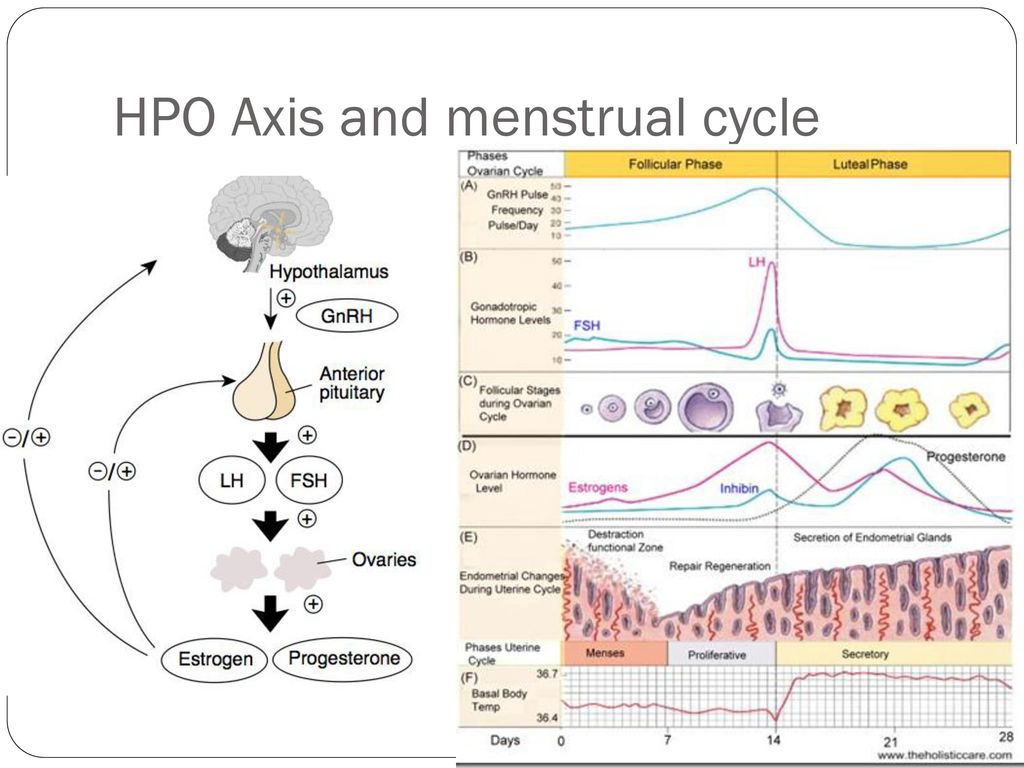
If SSRIs do not work, or if they cause undesirable side effects, a doctor may prescribe another type of antidepressant.
Individuals who experience depression regularly before or during their period may wish to speak to a doctor. Treatment is available for people with PMS, PMDD, or co-occurring mental health conditions.
If someone is at immediate risk of suicide or serious self-harm, seek emergency help by calling 911 or the local emergency number.
Anyone with suicidal thoughts can access help from the National Suicide Prevention Lifeline at 1-800-273-8255.
Experiencing low mood, anxiety, or irritability during a period is common. These symptoms should resolve a few days after the onset of the menstrual period. In mild cases, lifestyle and dietary changes may be beneficial.
If these mood changes occur regularly, persist all month, or have a significant effect on a person’s life or relationships, they may require other treatment.
Many people can get relief from PMS or PMDD with appropriate treatment.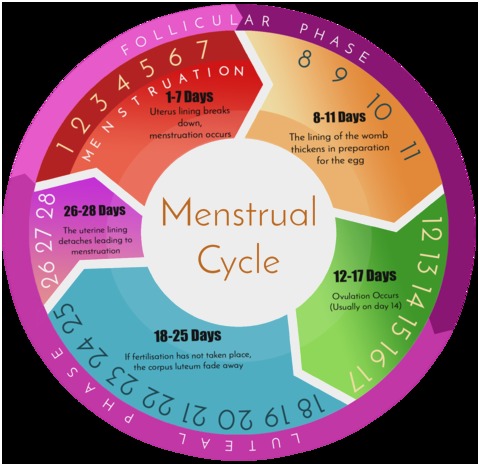
More support and information are available through the IAPMD.
Depression during menstruation: how hormones affect our mood
Health
- Photo
- Getty Images
It is generally accepted that it is female hormones that make mood unstable. But doctors say with confidence: progesterone and estrogen protect the woman's psyche from mental disorders. This was discussed by the speakers at the III International Medical Conference “Brain Functioning: Control Leverage, Recovery Options and Ways of Improvement”. nine0003
Prof. Dr. med.
General Therapist, General Therapist Mayer, Deputy Chief Physician for Development and Research at the Austrian Health Center Verba Mayr
The organs in our body do not work by themselves. All processes are controlled by the nervous system and the system of hormones associated with it.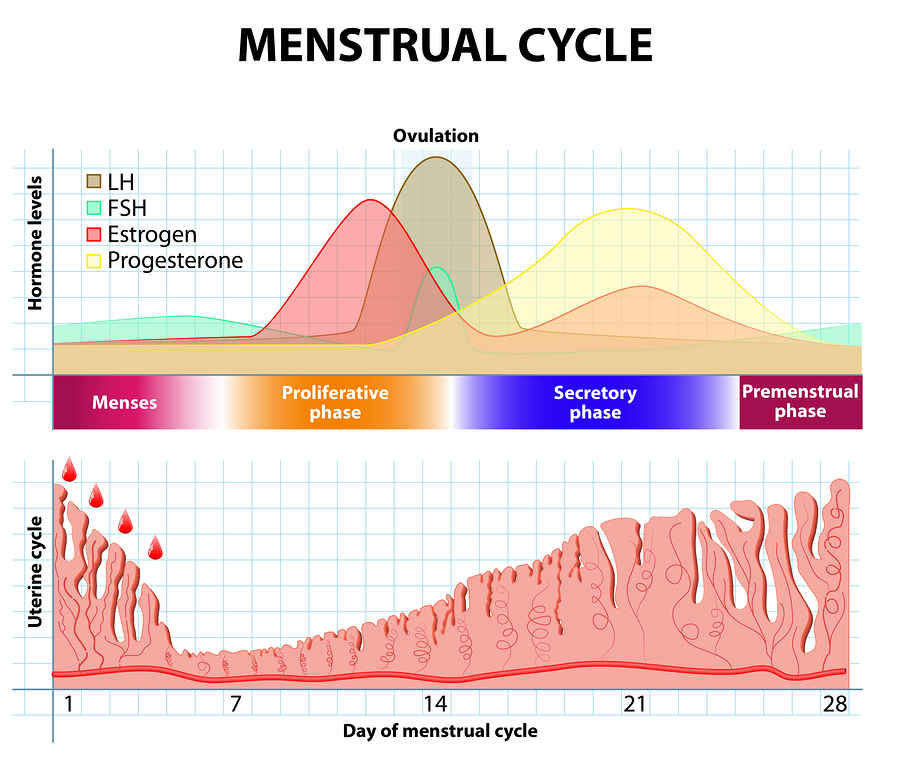 Emotions are no exception. Hormones not only control the growth and function of cells, tissues, and organs, but they also serve as neurotransmitters—mediators between the nervous system and the body.
Emotions are no exception. Hormones not only control the growth and function of cells, tissues, and organs, but they also serve as neurotransmitters—mediators between the nervous system and the body.
The more cortisol in the body, the lower the level of happiness hormones. The less the latter, the more pronounced the stress state. As a rule, cortisol is produced in the morning, because in ancient times, a person needed stress in order to get out of the cave and get his own food. Therefore, in the morning, very often people wake up with a bad mood. It is very important to take a shower, do physical exercises in order to disperse cortisol and reduce stress levels a little.
It is precisely because of the constant stressful situations in our lives that a new term is gaining popularity - “syndrome of tired adrenal glands”. The latter produce a large amount of hormones: cortisol, adrenaline, norepinephrine and some others. Together with the hypothalamus and pituitary gland, they form a normal and vital response to stress. But when stressful conditions are a constant phenomenon, then cortisol is constantly produced in the body, the work of the nervous, cardiovascular, immune systems, and the gastrointestinal tract is disrupted. nine0003
But when stressful conditions are a constant phenomenon, then cortisol is constantly produced in the body, the work of the nervous, cardiovascular, immune systems, and the gastrointestinal tract is disrupted. nine0003
Symptoms of adrenal gland fatigue syndrome:
-
Strong fatigue in the morning,
-
Mental Disorders,
-
Insomnia,
-
Unsuitable malfunctions in the digestive tract,
- 9000 9000 9000 hair and nails.
More than just hormones
In terms of the effect of hormones on health, women are in a better position. In the United States, experiments were conducted when it was noticed that in the presence of estrogen, a coronavirus infection is much easier to tolerate. Studies show men and women are affected by COVID-19differently: the former get sick more often, their disease is much more severe.
Estrogen has a protective function against stress. Studies have shown that this female hormone is associated with the formation of post-traumatic disorders. The degree of exposure to them depends on the level of estrogen in the body. The more it is, the less psychotrauma a woman has.
The degree of exposure to them depends on the level of estrogen in the body. The more it is, the less psychotrauma a woman has.
- Photo
- Getty Images
Women's depression
During menstruation, the level of estrogen in a woman's body decreases, but there is more progesterone. Strong emotional swings are connected with this during this period. It is thanks to the increased emotionality that occurs due to hormone surges that the myth of female instability has appeared. But is it? nine0003
Indeed, clinical evidence suggests that fluctuating ovarian hormones are associated with an increased risk of depression. Women experience depression almost twice as often as men. And the difference is obvious only in the reproductive age.
Some women experience severe affective symptoms during the late luteal phase of the menstrual cycle, when progesterone and its metabolite, allopregnanolone, rise gradually and then fall rapidly. During menstruation, estrogen is at its lowest and brain activity tends to decrease. During a decrease in ovarian hormones, namely in the postpartum period, during menopause, there is a high risk of mood changes and depression. nine0003
During menstruation, estrogen is at its lowest and brain activity tends to decrease. During a decrease in ovarian hormones, namely in the postpartum period, during menopause, there is a high risk of mood changes and depression. nine0003
However, during ovulation, estrogen levels are high, so brain activity is at its peak. During this period, the female representatives are stress-resistant and tolerant to pain.
More and more often you can hear from a woman: "I have a wonderful family, no financial worries, everything is very good, but severe depression." And the reason is in progesterone, or rather, in its absence, - Dr. Huber gives an example from practice in his lecture “Aging from the point of view of gynecology and reproductive medicine”. - I urge not to treat such women with psychotropic drugs. It is necessary to check the hormones and, if necessary, prescribe progesterone to the patients. And you will see that the hormonal balance will provide a mood-lifting effect.
” nine0003
Disappointing statistics
After the age of 45, women begin to experience depression more often. Experts in the field of psychosomatics say that this is easy to explain. So, by the age of fifty, children leave their parental nest, a woman is left alone with a man. It also affects the decrease in sexual activity.
But the main reason is that at this stage of life, progesterone starts to decline. Namely, this hormone has a psychotropic effect on the body of a woman. For these reasons, menopause is often associated with depression. We should also not forget that the ovaries are responsible not only for mood changes, but also for accelerated biological aging. nine0003
- Photo
- Getty Images
How to avoid depression
So now we understand the importance of hormone balance for mental health. But what to do about it? To maintain natural hormone levels follow these simple guidelines:
-
follow a healthy lifestyle .
 Good sleep (at least eight hours), proper nutrition with a minimum sugar content and no caffeine, moderate exercise are important; nine0003
Good sleep (at least eight hours), proper nutrition with a minimum sugar content and no caffeine, moderate exercise are important; nine0003 -
try to minimize your stress levels . Self-regulation skills are useful for this: meditation, relaxing and breathing practices;
-
seek natural stimulation of pleasure hormones . Hugs, sex, delicious food, communication with children will help;
-
regularly undergo a medical examination.
Anna Gerasimenko
PMS and depression - HealthInfo
It is known that there are about 150 symptoms of premenstrual syndrome (PMS). This unpleasant condition is familiar to approximately 80% of all women (and their families), but only approximately 10% suffer from it for real, often with severe symptoms of depression.
Many women habitually associate nervousness, mood swings, depression, aggression with the menstrual cycle. But this relationship does not always exist. Can't changes in a woman's mood be related, for example, to weather conditions or occupation? How do you know when it's time to ask for help? nine0003
But this relationship does not always exist. Can't changes in a woman's mood be related, for example, to weather conditions or occupation? How do you know when it's time to ask for help? nine0003
Depends on the weather…
“When we do research related to PMS, many women report that they generally feel a little better in the spring and summer (closer to summer), and worse in the winter,” says Jean Endicott, PhD, Professor of Clinical Psychology and Psychiatry at Columbia University. “That is, in itself, the connection between the mental state of a woman and the current season clearly exists, although there is no scientific justification for this.”
Perhaps this is due to the fact that there are more sunny days in summer, or because this season women have more opportunities to be outdoors and are more physically active, and physical activity is known to be a good remedy for depression. In winter, there are fewer such opportunities. In addition, scientists believe that women who are dependent on seasonality may be partially dependent on circadian rhythms.
Circadian rhythms are biological cycles that repeat every 24 hours and include periods of wake and sleep, activity and rest, hunger and food intake, and fluctuations in hormone levels and body temperature. How strongly all these rhythms affect the condition of a woman, in all likelihood, depends on her individual characteristics. nine0003
PMS, depression… or is that the nature?
Nevertheless, one should not treat one's mood lightly, just as one should not raise a panic ahead of time. It is important to understand why irritability is replaced by tearfulness, and quiet "bright" sadness suddenly turns into "black longing".
If you are prone to mood swings or feel down, try keeping a diary for three months in which you record absolutely every change in your mood every day. nine0003
Buy a calendar and chart daily mood swings: up and down, happy, sad, tired, euphoric, angry, irritable. But only this needs to be done every day, without waiting for the mood to deteriorate sharply or only when menstruation approaches.
Time to see the doctor?
If your diary shows that depression is indeed related to your monthly cycle, how do you know if you should seek medical help? Try to answer questions:
- Are you not just irritable at this time, but do you get into conflicts on any occasion with family members and make scandals for them?
- Are you unable to work productively and enjoy family life at this time?
- Do you have difficulty performing your daily functions, change your eating habits or lose your appetite, or do you sleep poorly?
- Do you experience severe anxiety or bouts of self-criticism?
- Do you have thoughts of death or suicide? nine0030
If you answered yes to several of these questions (especially the last one), see your doctor. If your cycle symptoms are really starting to interfere with your work or personal life, it's time to seek professional help.
Fighting PMS is a must
There are several options for dealing with depression associated with PMS, which one to choose - the doctor will advise. This, for example, can be a course of cognitive behavioral therapy or light therapy. It is possible that a course of antidepressants or other drugs will be prescribed (on a strictly individual basis). nine0003
This, for example, can be a course of cognitive behavioral therapy or light therapy. It is possible that a course of antidepressants or other drugs will be prescribed (on a strictly individual basis). nine0003
Antidepressants
Antidepressants of the SSRI group (selective serotonin reuptake inhibitors) are sometimes prescribed in such cases. They elevate mood by increasing the brain's use of chemicals called serotonin, which are responsible for transmitting impulses between cells (neurotransmitters). SSRIs have become the most popular treatment for depression because they are proven to be highly effective and have fewer side effects. The intake of such drugs begins on the 14th day of the cycle and stops with the onset of menstrual bleeding. As a rule, several weeks pass before the onset of a lasting effect, but in women suffering from depressive conditions due to PMS, it occurs faster. Remember that only a doctor can give you medicine! nine0003
Cognitive behavioral therapy
Cognitive behavioral therapy can help develop skills to manage depression and change moods associated with the menstrual cycle. This method is based on ideas, according to which the feelings and behavior of a person are determined not by the situation in which the person finds himself, but by his perception of this situation. This technique can prompt a woman to sometimes very simple methods of correcting her lifestyle and behavior, for example, not to plan difficult work these days, or attend relaxing massage courses and not skip yoga classes. nine0003
This method is based on ideas, according to which the feelings and behavior of a person are determined not by the situation in which the person finds himself, but by his perception of this situation. This technique can prompt a woman to sometimes very simple methods of correcting her lifestyle and behavior, for example, not to plan difficult work these days, or attend relaxing massage courses and not skip yoga classes. nine0003
It is useful to make a list of things to do and things in advance that are pleasant for you and will really help you control yourself and cheer you up. Only the list needs to be drawn up in advance, because when the “moment” comes, you will have neither the desire nor the energy for this.
Light therapy
Light therapy, a specific treatment that causes biochemical changes in the brain that improves mood, gives good results. Light therapy helps to regulate the level of melatonin, a decrease in which leads to poor sleep, if not insomnia.














